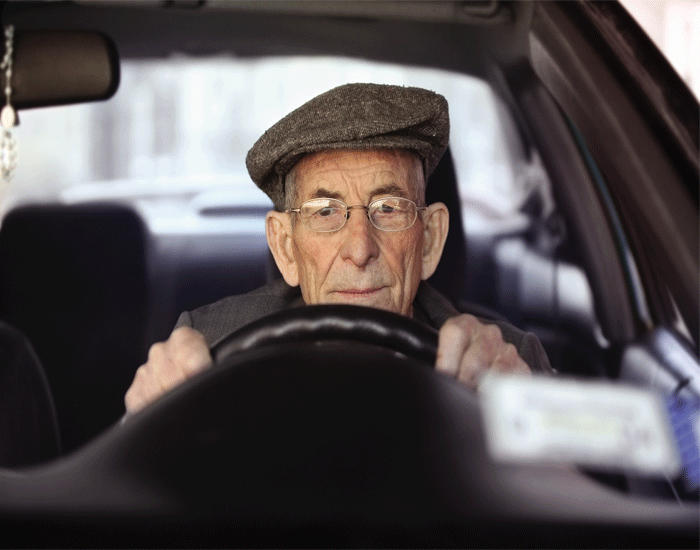For millions of drivers, driving may become a daily activity that one takes for granted until there are factors that interfere with the independence and ease of getting behind the wheel. Although many elderly individuals are forced to give up their driving privileges when they move into a nursing home facility, the Administration on Aging (AOA) reports that about 28% of elderly individuals still live alone and are likely to drive. According to the auto insurance company, AAA, approximately 85% to 90% of individuals over the age of 65 years old will have a driver’s license by 2030.
Although older drivers are less likely to engage in the same risky behaviors of some younger drivers, the elderly are still at risk of being involved in or causing a car accident. The Insurance Institute for Highway Safety (IIHS) reports that the number of fatal car accidents per mile traveled increases around 70 years old and peaks at age 85 and older. While it’s often difficult to determine when an elderly driver should give up his or her driving privileges, there are often warning signs that may help make the decision a little bit easier:
Decline in Health
Safe driving requires a combination of coordination and the ability to react quickly. Due to the natural process of aging, coordination and reaction time may be affected. Additionally, many elderly individuals may also experience changes in vision or hearing and a loss of strength or flexibility. Some health conditions that may greatly affect one’s ability to drive includes, but is not limited to: Dementia/Alzheimer’s, stroke, Parkinson’s disease, arthritis, diabetes, or any mental or physical condition that requires a medication (that could affect driving).
An elderly individual, who faces a mental or physical health challenge, should discuss whether or not driving is possible with his or her doctor. While some conditions may force an individual to give up his or her driver’s license, some conditions can be monitored.
Risky or Unsafe Driving
Health conditions are not the only reasons that some elderly drivers should stop getting behind the wheel. Often times, older drivers begin to exhibit some risky or unsafe driving behaviors from time to time and gets worse over time. If you or a loved one begins to exhibit the following behaviors, it may be time to hand over the keys:
- Getting lost frequently or easily
- Almost crashing, having many close calls, or getting into car accidents
- Being distracted, aggressive, or agitated behind the wheel
- Drive too fast or too slow
- Fail to obey traffic laws or signs
- Becoming easily confused
Tips to Help an Elderly Individual Stop Driving
When an elderly individual is forced to give up his or her driving privileges, it can be a difficult transition as it marks the end of independence for many individuals, but it can also save and improve an elderly individual’s life. According to Klein Lawyers, LLP, a car accident results in physical and emotional pain and suffering, expensive care costs, and even the general loss of enjoyment of life. If an elderly driver is involved in an accident, the recovery time may take much longer than a younger driver and the costs of rehabilitation may be much higher.
If you are a caregiver or a loved one to an elderly driver who needs to stop driving, here are some tips for helping make the transition a little easier:
- Be patient, but stand your ground. Understand the emotions your elderly loved one may be facing, but don’t let him or her drive.
- Remind and explain why he or she is no longer able to drive safely. Don’t make him or her feel embarrassed or unworthy.
- Offer to give rides or sign him or her up for transportation. Just because he or she is no longer able to drive, he or she should not be kept from doing daily errands or other enjoyable things.
- If you can’t keep your elderly loved one from driving, contact your local DMV, the police department, or even your loved one’s doctor to see if you can get assistance in intervening.






Be the first to comment on "Elderly Drivers: Signs That You May Need to Hand Over the Keys"